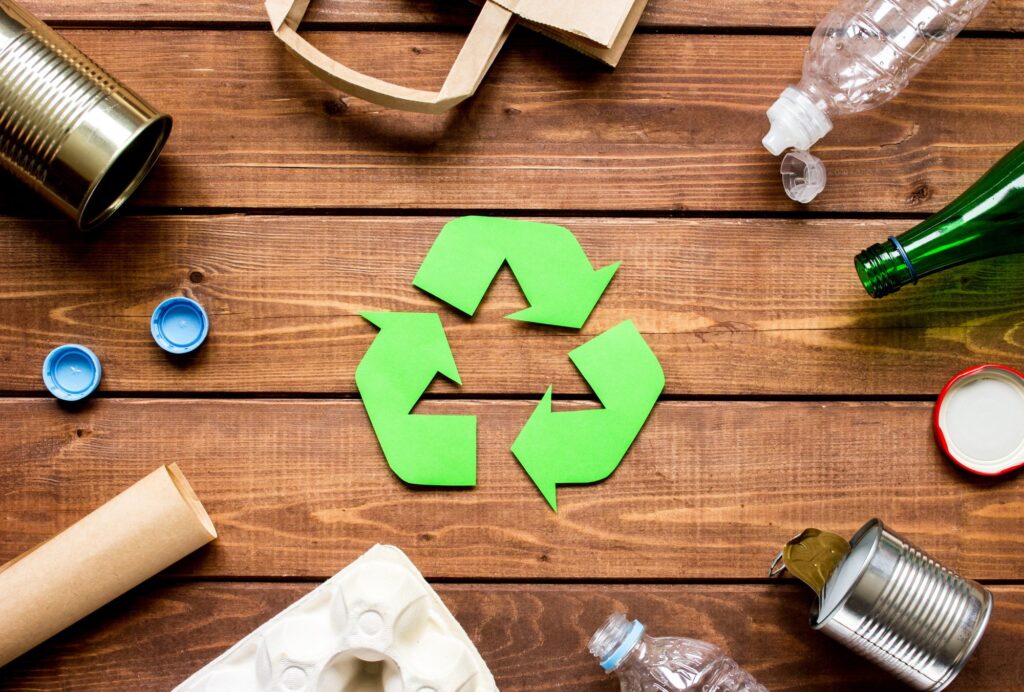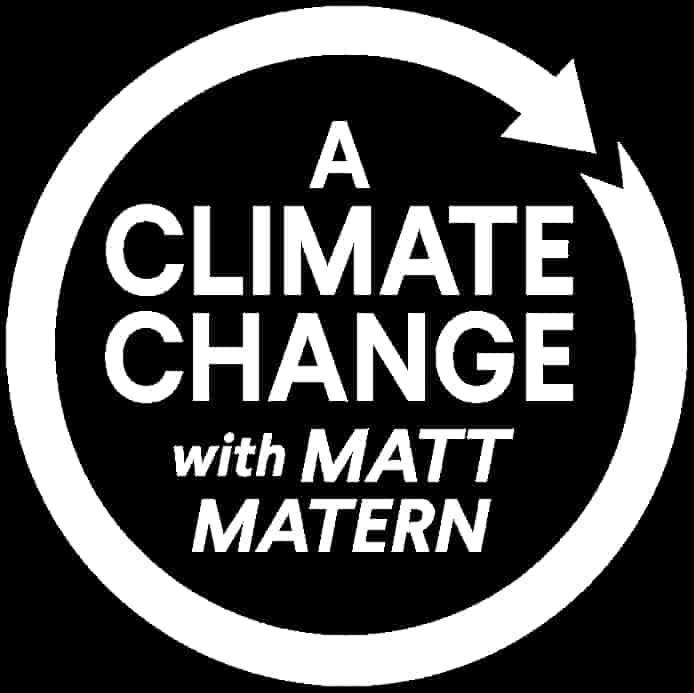
In 1960, fewer than 7% of Americans recycled. Now, that number has risen to 32%. While that’s an impressive increase, we still have a long way to go.
If everyone took the time to separate their garbage, our world could see an incredible transformation. Though that might be a huge leap, it’s not an impossible one. Together, our small steps could add up to a major, collective impact.
Still not sure why it’s worth the effort?
Today, we’re sharing a little more about why we should recycle, and how you can get started today.
What Would Happen If We All Recycled?
As our population inches closer to total green living, it’s interesting to think about what would happen if we all joined the cause. The biggest shift would occur in the way our economy operates.
Right now, commerce follows a make-take-waste cycle. You purchase a product, use it up, and then toss it in the wastebasket. Eventually, it winds up in a landfill, where something as small as a plastic bag could take 20 years or longer to degrade.
If everyone adopted more sustainable practices, this model would become more circular in nature. Raw materials would remain in our economy, transformed into something different at the end of their lifetime. Instead of landfills, recycling centers would become bustling hubs of activity.
Need more tangible numbers?
According to one report, if everyone in America recycled just one plastic bottle, here’s what we could make:
- More than 54 million T-shirts
- Around 6.5 million fleece jackets
This trend continues when we look at other recyclables, such as aluminum cans. If everyone placed one can in the recycling bin, we could accomplish the following:
- Make 295 million new cans
- Reduce greenhouse gas emissions equivalent to taking 6,750 passenger cars off the road
When you look at the math this way, it’s illogical not to take this simple step. If you’re more driven by economic factors, then consider this: A unified effort to recycle could also save businesses a significant sum of money.
In their latest Environmental Responsibility Report, Apple executives noted that they recovered 90 million pounds of materials from devices recycled through the company’s recycling program. Of those materials, they can reuse 61 million pounds in future products. This includes 2,204 pounds of gold worth almost $40 million.
Not only is recycling good for the environment, but it can also yield some serious returns in some cases!
Five Reasons to Recycle Today
Sure, it’s exciting to think about how much change we could ignite if we all pitched in and did our part to keep recyclable waste out of landfills. However, this task can seem incredibly daunting.
Are you still looking for a few personal reasons why you should implement this practice? Here are seven important ones to consider.
1. Protect Valuable Wildlife and Ecosystems
Pollution and toxic waste pose a direct threat to the health and well-being of wildlife around the world. It disrupts their habitats, makes their living conditions unsafe, and prevents them from accessing clean food and water. This can damage entire ecosystems and put species in danger.
When you recycle, you can help curb this effect. Long term, this practice helps lower the number of landfills that expand across the globe. This allows natural areas (and the creatures that live within them) to thrive. More immediately, you can also help ensure that the animals in your local area don’t become trapped or injured by garbage, or consume unsafe materials.
2. Save Energy
In the race against climate change, one of the most effective and transformative steps we can take is to lower our collective energy output. When you recycle, you can do your part to support this cause.
How? When you recycle a product, the next manufacturer doesn’t have to use new raw materials to produce another item. Working with raw materials often requires the use of toxic chemicals, so it’s important to leverage any opportunity to reduce those processes.
In addition to being gentler on the environment, recycling keeps production costs low and helps conserve energy costs. When companies can do more with less, they can lower their overall carbon emissions.
3. Conserve Natural Resources
Every time you recycle paper, you’re helping to lower the number of trees that need to be cut down to make new products. The same applies to plastic, metal, and glass. While these materials don’t exactly grow in nature, the raw materials used to make them do.
According to one study, around 10 million hectares are deforested every year. That’s an area roughly the size of Portugal. By recycling, we can help conserve trees and other natural resources.
For metal, this means there’s less ore being extracted from the ground. For glass, there’s less sand. For plastic, there are fewer fossil fuel hydrocarbons. Many of our natural resources are on the brink of collapse, so it’s important to look for any opportunity we have to preserve and protect them.
4. Boost the Economy
There are many economic reasons to recycle! The act of turning waste into usable raw materials can have the following benefits:
- Creates new jobs
- Adds to the economy
- Builds competitive manufacturing industries
One study shows that the recycling and reuse industry employs around 1.1 million people across the country, covering approximately 56,000 establishments. This sector generates an annual payroll of about $37 billion, grossing an impressive $236 billion in annual sales. Moreover, the industry also indirectly supports an additional 1.4 million jobs, with a payroll of $52 billion and $173 billion in annual sales.
What do all of these numbers mean?
Recycling is a big business, and it can be an even bigger one if we all embrace it. It also drives competition between manufacturing firms to see who can adopt the “greener” practices. This leads to better and more innovative products and services.
5. Help Stop Climate Change
Recycling helps reverse the effects of climate change in two important ways. First, it limits the amount of raw materials used in traditional manufacturing. Second, it limits the amount of waste that winds up in the landfill.
One report shows that if recycling efforts remain consistent between 2020 and 2050, we could remove more than six gigatons of carbon dioxide from the air. That’s the equivalent of taking one billion cars off the street for an entire year.
However, that’s not nearly all of it.
When a product goes to a landfill, it starts to decompose anaerobically. This process releases a ton of methane into the air. While carbon dioxide is arguably the most well-known greenhouse gas, methane is more damaging.
In fact, it’s more than 25 times as potent as CO2 when it comes to trapping heat in the Earth’s atmosphere. Yet, its concentrations have more than doubled over the past two centuries, largely due to human activities. In the U.S., landfills are the third-largest emitters of methane, right under enteric fermentation and natural gas and petroleum systems.
6. Reduce Water Pollution
How much pollution would you guess the world’s water sources contain? Would you expect that around two billion people don’t currently have access to safe drinking water? At the same time, around half of the global population experienced severe water scarcity last year.
According to one study, recycling paper alone can cut air pollution by nearly 75%. It can also reduce water pollution by 35%. Making the switch to recycled steel eliminates a substantial 97% of mining waste, along with 86% of air pollution and 76% of water pollution.
Much of this decline is attributed to the lower levels of fossil fuels required to perform production. In addition, less trash in the landfill also means there’s a smaller number of plastic bottles, aluminum cans, and cardboard boxes floating in the ocean. Not only does this damage the natural ecosystem of the water, but it can also pose a direct threat to the health and safety of every creature that calls the water home.
7. Spark Ongoing Change
The benefits of recycling are real, and they can encourage lasting change on nearly every corner of the planet. The more people pitch in and rethink the way they pitch their trash, the easier this process will become.
When demand for recycled products goes up, manufacturers will need to look for greener and more eco-friendly methods of production. We’re already seeing this now, as 85% of global consumers say they’ve shifted their buying habits over the last five years toward being more sustainable.
To keep satisfaction levels high and remain competitive, companies will begin to adopt greener practices. In turn, this will give purchasers more incentive to participate in the effort. It’s a beautiful, cyclical effort that everyone can join.
Learn More About Why We Should Recycle
When it comes to recycling, it’s easy to assume that if everyone else does their part, then you don’t have to. After all, what kind of impression can one small decision really make?
As we’ve shown, it can have an enormous impact. From local wildlife and water systems to air quality and global economies, there are myriad entities that benefit when you choose to perform this important step.
Now that you know a little more about why we should recycle, are you ready to stay informed on other ways you can help the environment? You’ll find tons of information, updates, and tips on our podcast, available on Apple Podcasts, Spotify, and iHeart Radio.
Check out our episodes today! Then, subscribe so you never miss a new one.

